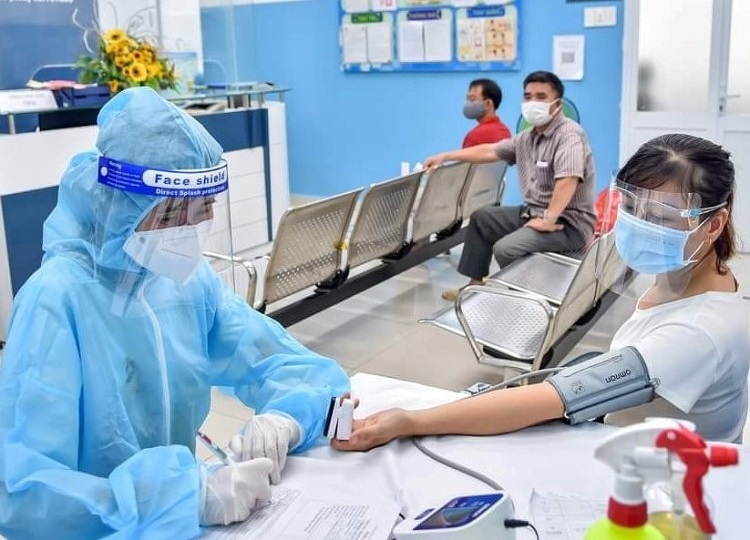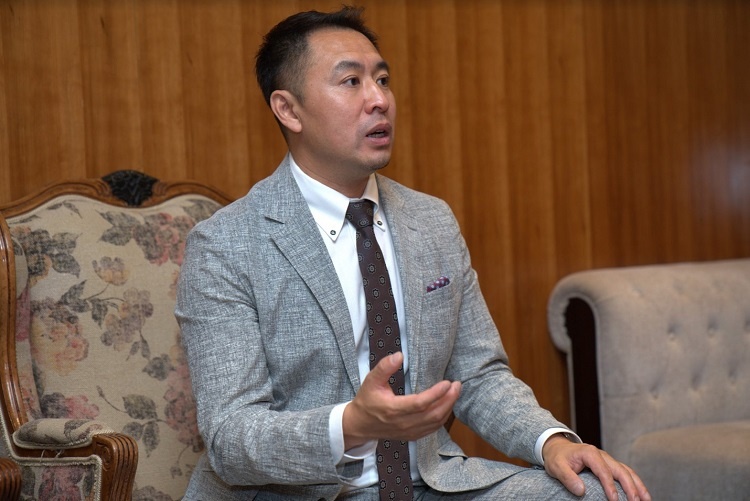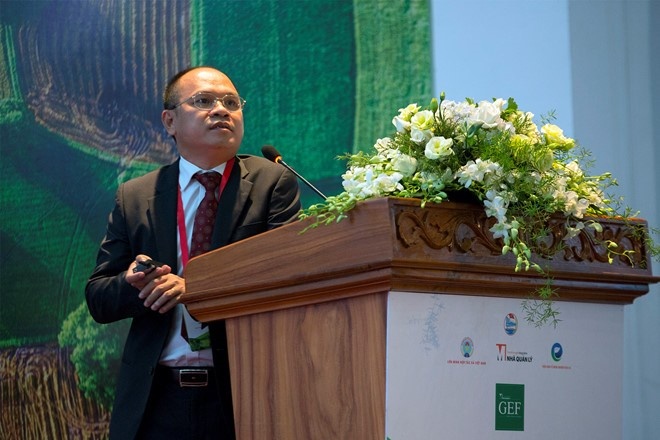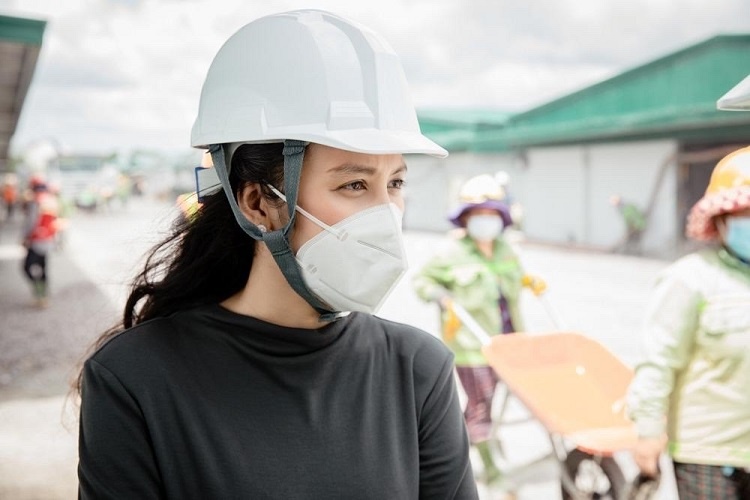Green Economics Institute to cooperate with Van Thinh Phat and Medi Hub
With the aim of improving the capacity and quality of medical examinations and treatments in the grassroots healthcare system for Vietnamese people, the Green Economics Institute has managed to realise the initiative in which Van Thinh Phat is the financial sponsor and Medi Hub is the solutions provider for the technological transfer.
The grassroots healthcare system is the gatekeeper and the first place people go when they are sick or suffer from diseases. However, the recent fight against the pandemic has shown much inadequacy and weakness in the community healthcare system.
At an online meeting on October 9, Nguyen Van Vinh Chau, Deputy Director of Ho Chi Minh City Department of Health said, "There still remains much weakness in terms of human resources, organisational structure, infrastructure, and equipment in the public health system. These include those from the Center for Disease Control to the district medical centres and the health stations of wards and communes".
 |
| The grassroots medical workers in the fight against the pandemic |
Outdated facilities and equipment, a lack of human resources, a mentality of despising the grassroots healthcare system, and the choices of people wanting medical examinations and treatments at the upper level have further reduced the capacity of community health.
In addition to supporting the grassroots healthcare system to build electronic health records for the management and monitoring of each household and individual in the area, this latest initiative also focuses on investment resources at the Center for Disease Control and district health stations to improve their capacity to deliver services, thus reducing the potential overload at larger hospitals.
 |
| Hidetoyo Teranishi - CEO of Medi Hub Company Japan |
Talking about solutions to improve the quality of medical facilities and overcome the shortage of human resources, Hidetoyo Teranishi, CEO of Medi Hub Company Japan said, "If medical staff and small stations have a system which standardises the online treatment protocol by the use of software, it is the patient database and electronic medical records that will help the medical staff to immediately screen for urgent or minor illnesses, or instantly connect with the patient care line and thousands of experienced doctors."
"This support allows medical stations with just a few staff to still operate effectively even though they are far from central and frontline hospitals”, he added.
"Founded in 2014 in Japan with the mission of connecting the world to create a healthy future, and improving public health through digital transformation in the medical field, Medi Hub has developed throughout Asia with more than 500 customers and partners. It is ready to connect Vietnamese partners with technology, engineering, and hundreds of thousands of experienced Japanese doctors to build this model," stated Teranishi.
 |
| Le Thanh - chairman of the council of the Green Economics Institute |
Le Thanh, chairman of the council of the Green Economics Institute said that this method of collaboration is the potential solution.
He stated, "Community health must always be ready to respond to emergencies so the state can call for action to use the grassroots medical stations if necessary. In normal situations, the private sector could bid for the provision of medical examinations and treatment services at the stations. If there is a better capacity and management system, it will help to reduce the pressure that major hospitals are currently struggling with every day."
 |
| Truong Hue Van, vice chairwoman of the Van Thinh Phat Group, has joined to support Ho Chi Minh City |
Truong Hue Van, vice chairwoman of the sponsoring Van Thinh Phat Group, explained the reasons why she had chosen to participate in this initiative.
“Prime Minister Pham Minh Chinh once campaigned for the spirit of every ward is a fortress. I believe the initiative proposed by the Green Economics Institute is an integral part of this goodwill by the head of the government. If we can strengthen the local community healthcare system, it means we have built a firewall to protect people's health, improve their quality of life, and contribute to the national development through the right investment in social infrastructure with public-private partnerships,” she said.
Professor Tran Van Thuan, Deputy Minister of Health, added, “Vietnam's grassroots healthcare network has extensive coverage in every village, hamlet, and neighbourhood. However, people's healthcare needs have changed significantly with the emergence of the pandemic, which requires the grassroots healthcare care system to innovate in both material and financial terms, with both human resources and technology."
"More than ever, the Ministry of Health calls for people, communities, and businesses to provide initiatives and solutions for service provision, human resources, technology, and investment. The need to cooperate with the health sector to improve the efficiency and quality of grassroots healthcare facilities, thus contributing to solving health problems and reducing the risks of diseases in the future,” he concluded.
What the stars mean:
★ Poor ★ ★ Promising ★★★ Good ★★★★ Very good ★★★★★ Exceptional
Related Contents
Latest News
More News
- Rising consumption and travel fuel ‘Tet season’ stocks (February 11, 2026 | 11:43)
- Education as strategic capital: why Dwight School Hanoi represents a long-term investment in Vietnam’s future (February 10, 2026 | 19:00)
- Green logistics–the vital link in the global energy transition (February 09, 2026 | 19:35)
- Wages and Lunar New Year bonuses on the rise (February 09, 2026 | 17:47)
- Temporary relief for food imports as businesses urge overhaul of regulations (February 07, 2026 | 09:00)
- Opella and Long Chau join forces to enhance digestive and bone health (February 06, 2026 | 18:00)
- Vietnam-South Africa strategic partnership boosts business links (February 06, 2026 | 13:28)
- Sun PhuQuoc Airways secures AJW Group support for fleet operations (February 06, 2026 | 13:23)
- Pegasus Tech Ventures steps up Vietnam focus (February 05, 2026 | 17:25)
- The generics industry: unlocking new growth drivers (February 04, 2026 | 17:39)

 Tag:
Tag:




















 Mobile Version
Mobile Version